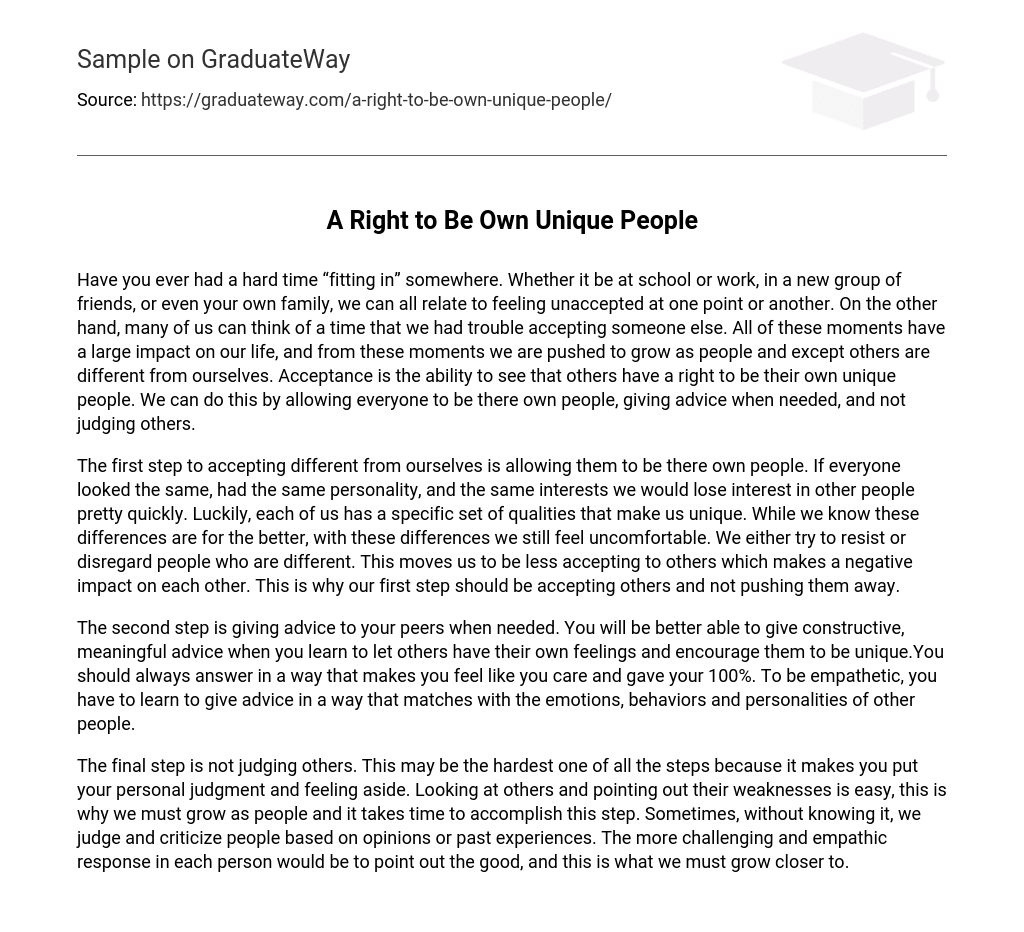Have you ever experienced the struggle of fitting in, whether it’s at school, work, with new social groups, or even within your own family? Feeling unaccepted is a common experience that many can relate to. On the other hand, we have all faced challenges when it comes to accepting others. These experiences play a significant role in shaping our lives and promoting personal growth as we learn to embrace those who are different from us. Acceptance involves acknowledging that others have the right to be true to themselves. We can achieve this by encouraging individuals to express their authentic identities, offering support when needed, and refraining from being judgmental.
The initial step towards accepting others is granting them the freedom to be themselves. If everyone appeared identical, possessed the same personality traits, and had identical interests, our fascination with one another would diminish rapidly. Luckily, we each possess distinctive attributes that render us extraordinary. While we recognize the advantages of these disparities, we frequently experience discomfort concerning them. We may exhibit resistance or disregard towards individuals who differ from us. This lack of acceptance detrimentally affects all of us. Hence, our primary emphasis should be on embracing others rather than spurning them.
The next step is to provide guidance and support to your peers as needed. By allowing others to fully feel and express their emotions, while accepting their unique qualities, you can offer valuable advice. It’s crucial to respond with genuine care and effort. Developing empathy means adjusting your advice to match the emotions, actions, and traits of others.
The last step in personal growth is abstaining from judging others. This step is particularly challenging as it necessitates us to put aside our own biases and emotions. It is simple to observe others and concentrate on their imperfections, which explains why personal growth requires time and effort. Frequently, without being aware of it, we assess and criticize others based on our own viewpoints or previous encounters. Instead, a more difficult and compassionate approach would be to recognize the favorable qualities in every individual. This is the path we should endeavor to develop.





